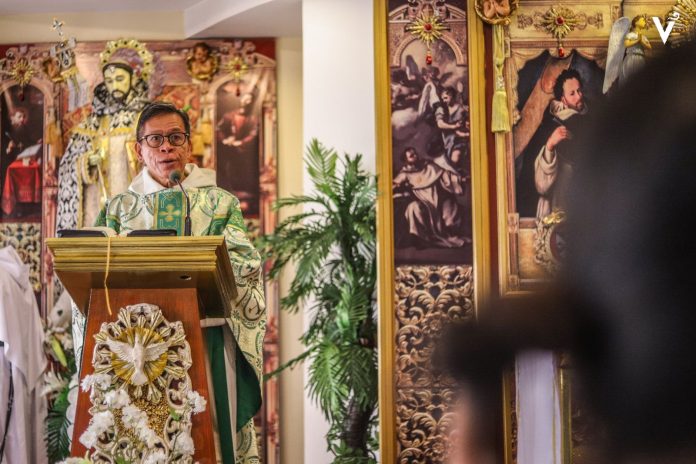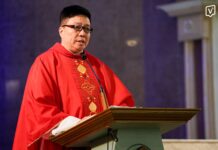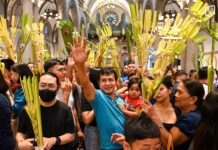(Editor’s Note: The following is a personal reflection on Covid-19 by former UST vice rector Fr. Virgilio Ojoy, O.P.)
***
Before the virus hits me, allow me to share these thoughts. The virus might one day catch up on me but, I know, these insights will someday help conquer it. The virus is a great equalizer. It can put on their knees the destitute and the affluent, the loudmouthed and the voiceless, the president/senators and the powerless, even the physicians, acknowledged healers who, at some point, cannot heal themselves. Catholics, Muslims, INC members, Reformers, born-again Christians, all can be vulnerable to this plague.
In the face of this pandemic, we realize that as creaturely beings, we can sometimes reach the point of our human-limit-situation. Thus, we turn to God, the One who has no limits, to acknowledge to Him our excesses and shortcomings. We humbly accept that we did not respect the laws that He infused into this world when He created it. We used the forces and gifts of nature for our selfish, individual, familial, political party or national territory motives. Thus, like Adam and Eve, we are driven out of Paradise and imprisoned in the cages of our own homes. We experience the hell of isolation, the loss of many of our freedoms, and the scarcity of food and luxury. In this situation, we need to once more turn to the Almighty Creator, be thankful for the beautiful gift of creation and make a solemn vow to respect its natural and social laws.
As we are confined in our cage-homes, we realize that in the most trying times of life, we have family to always be around. Yet, many times, we take one another for granted. We neglect to engage in useful activities and conversations that enrich one another. We fail to share with one another our problems, our deepest longings, our profound thoughts that could make relationships stronger. Many times, we are strangers in our own homes and among our immediate family. In these weeks of quarantine, we can take the opportunity to discover the richness and beauty of family.
While we are safely nestled in our cage-homes, we usually turn on the television or go online through the social media. There, we hear the cries of the poor, the lamentations of hungry and slowly becoming angry people, the anxiety and worries of the frontliners, the anguish of those who lost a loved one over whose body they cannot mourn, or for whom they could not hold a wake until their grief subsides. As we become aware of these tragedies, we are spontaneously moved to reach out through prayers, kind thoughts and through material support. In these trying times, we are being made aware of our common solidarity as human beings, of our being ONE FAMILY OF GOD. Thus we need to discard all labels that tend to weaken this fundamental unity – religion, nationality, political party lines, blood ties. Or better, we may preserve them, but always bearing in mind our fundamental unity that leads all of us to respect one another’s beliefs and affiliations.
We can save ourselves from this pandemic, and prevent another plague from afflicting all of us, not because we are Catholics or Muslims or Reformers, not because we belong to this or that political party, not because we are highly educated or among the richest in the world, not even because we are Chinese or Americans, or Australians, Europeans or Filipinos. We would have saved ourselves because we acted as ONE – recognizing our common humanity and our need for one another.
When we are finally allowed to get out of our cage-homes, we would do well to acknowledge and love the Supreme Creator, humbly recognize and respect the laws of nature and society that came from Him, and effectively live the human solidarity that He so desires. Only then can we, once more, live in Paradise where our homes are not any more our cages.
***
Fr. Virgilio Ojoy, O.P. served the University as acting dean and regent of the Faculty of Arts and Letters from 1990 to 1991; secretary general from 1991 to 1992 and vice rector from 1992 to 1995. He is also a former associate editor of the Varsitarian.














